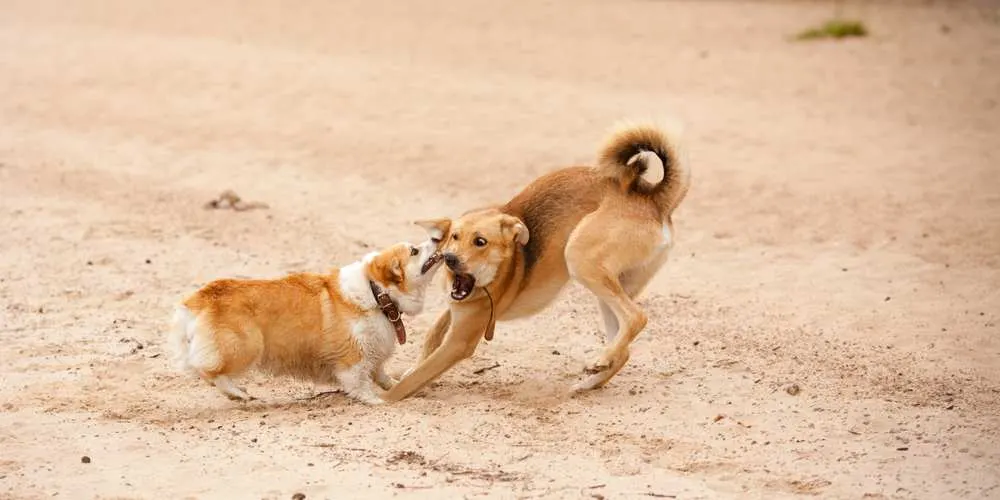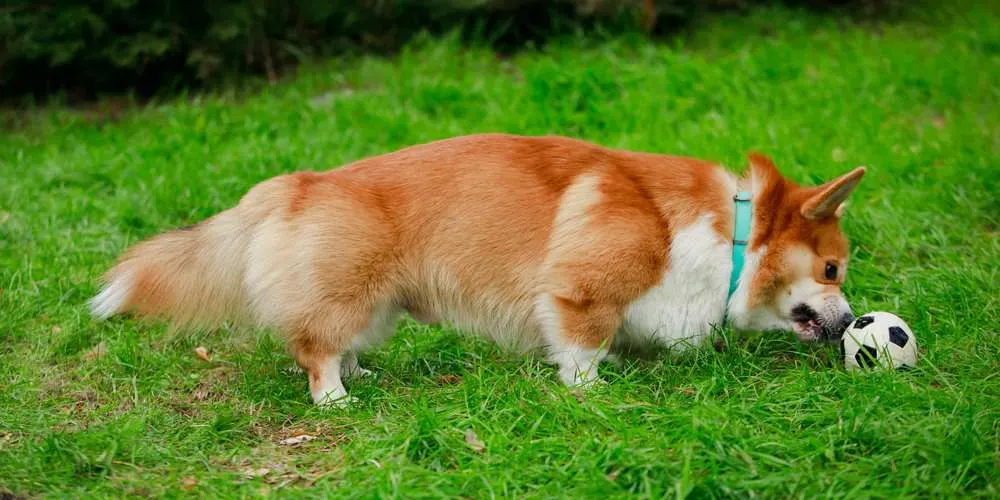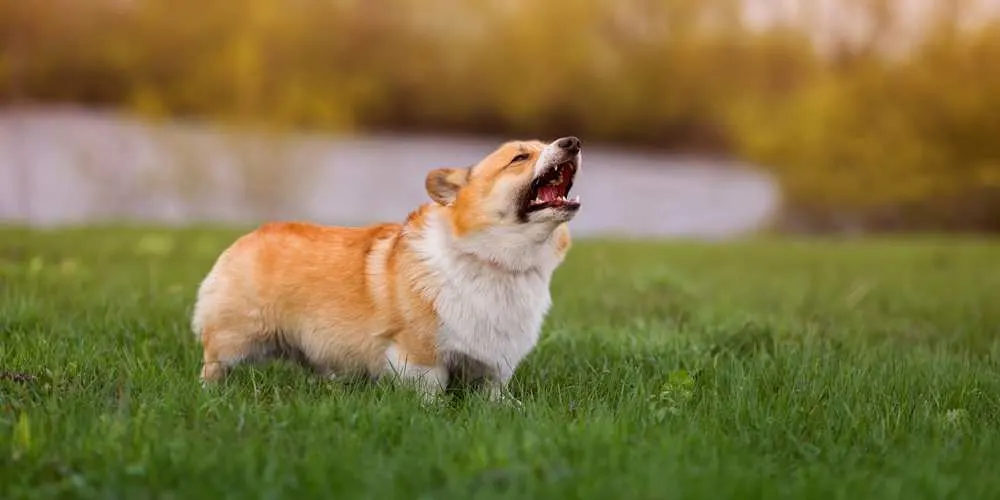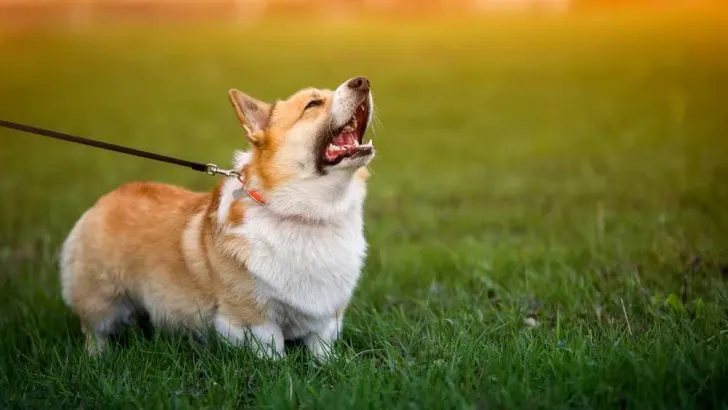It’s far from a pleasant experience when your dog growls at you or at someone else. This is nothing new to the corgi owners, so the reason for your presence here must be a situation where you’ve experienced something similar to this.
So, why do corgis growl so much? Why does my corgi growl at me? These are all the questions that deserve to be answered individually, so I suggest you arm yourself with patience.
For those who can’t wait to find out, long story short – there are a few occasions where your corgi can growl. Every situation is different so every reason in these situations also might be different.
To follow a simple breakdown of these situations and to learn a thing or two about your corgi’s behavior, I highly suggest you keep scrolling and keep a close eye on your fluff just in case they decide it’s a good time to get an unplanned snack.

Why Does My Corgi Growl?
I’m sure all of you want to get to a place where you understand the big majority of your dog’s behavior. This may not an easy task to do, but not an accomplishable one either.
One thing that you have to keep in mind is that you have to be patient. Like with all of the situations regarding your dog’s socialization – patience is key. No need for shouting, nervousness, and especially hitting.
But I digress. There are a few factors that are related to your corgi growling. Most of them are related to your pet’s age meaning that your corgi might be growling mainly when it’s just a puppy.
The biggest part of this comes from your puppy’s fear. Let me explain – the single biggest reason for your corgi to growl is when it feels scared as a puppy.
This is one of the two biggest reasons for this to happen. The second biggest reason is simple – they are playing!
Let’s tear this down into pieces that are easily understandable:
Playtime
This is the easier one to understand so let’s start with that. When corgis are puppies, like with most other breeds, they like to play. This is nothing new nor should it be surprising.
When you play tug wars with your little corgi or when you’re wrestling it on the couch, you should be prepared for light growling. This is instinctive for corgi puppies in these kinds of situations as they are highly energetic dogs.
If you’ve experienced your corgi growling in these kinds of situations, you shouldn’t be worried at all. This is just a game to them and the growling isn’t anything to be concerned with.
In case you’re looking to stop them from growling even in these types of scenarios, I don’t have good news. As long as you plan on playing with your corgi in a way that is going to involve their teeth or any kind of fighting simulation – they are going to growl.
Even if you try to sanction them from doing it, you will most likely fail. It’s like trying to teach a human not to laugh when they find something funny.
Growling is instinctive to them, and it’s probably for the best if you let them do it while playing.
This might come in handy later on when you encounter a situation where your dog will be playing with another dog in a dog park or on the street.
If your corgi stops liking where the game is going, you’ll notice a different growl to them. When this happens, I highly suggest you stop the playing session immediately and reserve to finding another spot to play in.
The change in growling might be a signal to the other dog that things are going to change and that playtime is going to become fight time.
When your corgi is just a pupper, this will probably happen more often than not, so be alert in these kinds of situations, especially the first few times you take your corgi out to play with other dogs.
If your corgi starts growling during playtime with other people that don’t know much about corgis or dogs in general, it might be best to quickly educate them on what’s happening so they don’t misinterpret your dog’s playfulness.
People tend to get scared when they hear a dog growl, and they might be confused if the dog growling is a puppy.
Remember, you can’t count on other people being educated on certain topics!
Feeling Threatened
The other possibility might be that they feel threatened. This is a much more serious situation where your dog requires your help.
This will probably happen in a dog park or somewhere your dog is not used to and is surrounded by people or animals it hasn’t been introduced to yet.
In this situation, I highly advise you not to let your corgi off the leash regardless of their level of training and obedience. These situations might be highly stressful for your dog and nothing guarantees it will listen to your commands.
Even if you see your corgi in a defensive stance and growling in a familiar dog park or on a familiar street, you should take care of it and separate your pet from the potential danger it fears.
Nothing should be more important than your pet’s safety, so even if you don’t see the same thing as a threat, you should act accordingly and listen to your dog.
Cats, rats, and mice can also be seen as a threat by your dog., so keep an eye out for these stray animals that can make your pet feel uncomfortable and ultimately – threatened.
Read Also: Are Corgis Prone To Anxiety? Are Corgis Anxious Dogs?

Some Rare Reasons
There are a few honorable mentions that need to be addressed since you may encounter them once or twice.
The first one is that your corgi might growl when you’re giving it food. This can occur if you haven’t established the fact that you’re the boss of the house.
When you’re bringing your pet food, they might be seeing you as someone who is touching something that is theirs, so they can start growling at that time.
Another situation that is very similar to this is when you touch their toys. You will probably experience when your corgi is just a puppy, but if you hear your dog growling when you touch their toys – it might be time to assert dominance and show them that you’re the owner.
The second scenario might be at the vet. Your corgi will probably develop a healthy relationship with their vet, but in an unlikely scenario where this does not happen, you might expect your pet to start growling the second they realize that you’re going to the vet.
Another very similar situation to that might be the grooming salon. Cutting hair or shortening the nails might be something your corgi doesn’t enjoy very much.
If this is the case, you should probably let the people who are working on your dog know that this will happen. They’ve probably gotten used to this, and it’s fine as long as the growling doesn’t become biting or scratching.
The last one is probably the most important one. This will happen very rarely as it requires an enormous amount of discomfort to be triggered, but it’s the biggest one on the “honorable mentions” list.
This is the situation where your corgi growls when something hurts or is not okay with its body. If they have crippling constipation or hip dysplasia they might start growling the second they start doing something that causes pain.
You should be aware of this because if you see your dog growling while trying to sit or lay, that means something is probably wrong with their hips or back.
If this happens while your corgi is trying to poop, that is almost certainly the problem with their bowel movements and you should take them to the vet immediately.
Many owners don’t pay attention to this and think it’s just random growling, but just keep in mind that corgis rarely do things without a specific purpose.

To Sum Up
As you had a chance to see – every situation in which your corgi growls can be different, so your corgi will probably growl for a different reason every time.
The only thing to keep in mind is to make a distinction between a playful growl and a serious one. When you are sure you can recognize these two, then you’ll have to go off of your instincts and determine what’s the reason for growling in a specific situation.
Remember that it takes time to get to know your pet, so have patience and don’t dismiss every single growl as playful, because your corgi might be telling you something you can’t see.
Read Also: Why Do Corgis Make Weird Noises?


